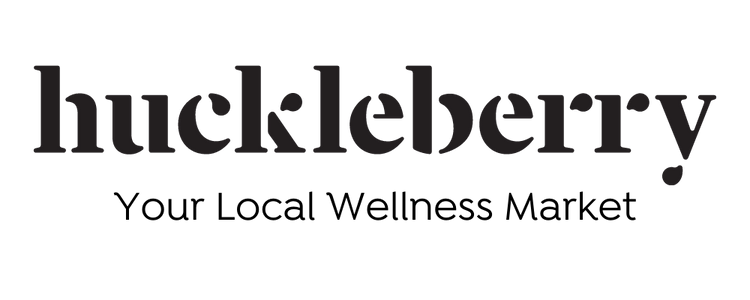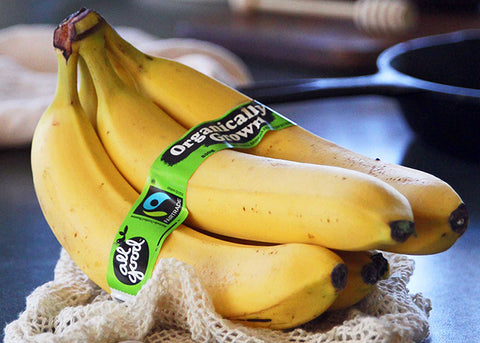Bees are amongst the hardest working creatures in our world, existing with the purpose of ensuring the strength and survival of their colonies. These tiny insects cannot be underestimated for the large role they play in the survival of our species too, as they are responsible for pollenating many of our flower and plant species, helping to sustain modern agriculture and the food we eat. There is a lot we can give thanks for when it comes to bees, including honey and propolis which have un-bee-leviable health benefits as natural medicines.
Honey
Honey bees seek out flower nectar to eat. The nectar is stored within the bees stomach which acts like a mixing bowl, combining the nectar with enzymes and proteins to form honey. The bees then strategically store the honey in the honeycomb within the hive and fan off excess water by buzzing their wings. Mānuka honey comes about when the honey bees collect nectar from the NZ native Mānuka tree (Leptospermum scoparium).
Honey has been used widely since ancient civilization's as a source of nutrition (honey contains vitamins, minerals, amino acids, enzymes and antioxidants) and medicinal remedy due to soothing and anti-microbial actions.
Mānuka honey is the “buzz-ness" when it comes to fighting bacterial infections, as the honey inherits anti-bacterial actions that the Mānuka tree is well known for. Studies have shown that Mānuka honey can inhibit the growth of around 60 different types of bacteria. To measure the unique compounds of Mānuka honey (Methylglyoxal, Leptosperin and DHA) UMF or MGO gradings are used, meaning the higher the grade number, the higher the therapeutic properties. Click here for more information on UMF and MGO rating system.
Mānuka honey is a great wholefood remedy to:
- Soothe a sore and inflamed throat
- Combat dental plaque and gingivitis
- Assist in healing gastric ulcers
- Assist in healing topical wounds (cuts, sores, mild burns and ulcerations)
- Assist in healing nail infections
When applying directly to a topical wound or infection, be sure to select a graded Mānuka honey to ensure maximum anti-bacterial effect.
Medihoney® Adhesive Dressings from Comvita are convenient to use for multiple skin complaints including common nail infections. Each morning and night simply apply a fresh plaster to the effected nail and continue until infection subsides.
Propolis
Honey bees are extremely resourceful and on their journey to gather nectar for honey they also collect resins produced by trees. This resin is then mixed with other compounds such as saliva and beeswax to form sticky, dark coloured propolis. For the bees, propolis is used to seal gaps in the hive thus forming a protective barrier against environmental elements. Propolis is also anti-microbial which helps to defend the colony against disease.
Propolis is a medicinal remedy used since traditional times to present day and has a number of therapeutic benefits. Research has shown propolis to be anti-bacterial, anti-viral, immune-stimulating, a natural pain reliever and helpful in cases of gastric ulcers.
These actions make propolis an affective go-to in cases of:
- Upper respiratory tract infections
- Gastrointestinal infections
- Bacterial, fungal or viral infections of the skin (used as a topical cream or paint)
- Mouth ulcers
Propolis extract is superb when diluted with some water and used regularly as a mouthwash to speed healing and reduce the pain of uncomfortable mouth ulcers. Visit any one of our knowledgeable in-store naturopaths to have them mix you up a mouthwash blend specific to your needs.
Written by Kate Dalliessi
References
Carter DA, Blair SE, Cokcetin NN, et al. Therapeutic Manuka Honey: No Longer So Alternative. Front Microbiol. 2016;7:569. Published 2016 Apr 20. doi:10.3389/fmicb.2016.00569
Burlando, B. and Cornara, L. (2013), Honey in dermatology and skin care: a review. J Cosmet Dermatol, 12: 306-313. doi:10.1111/jocd.12058
K P English, Helen & R C Pack, Angela & C Molan, Peter. (2004). The effects of manuka honey on plaque and gingivitis: a pilot study.. Journal of the International Academy of Periodontology. 6. 63-7.
Bone, K. (1988). Propolis - a natural antibiotic. MediHerb Professional Review, 9.
Apinzorgnz. (2019). Apinzorgnz. Retrieved 4 April, 2019, from https://apinz.org.nz/resources/learn-about-bees/




